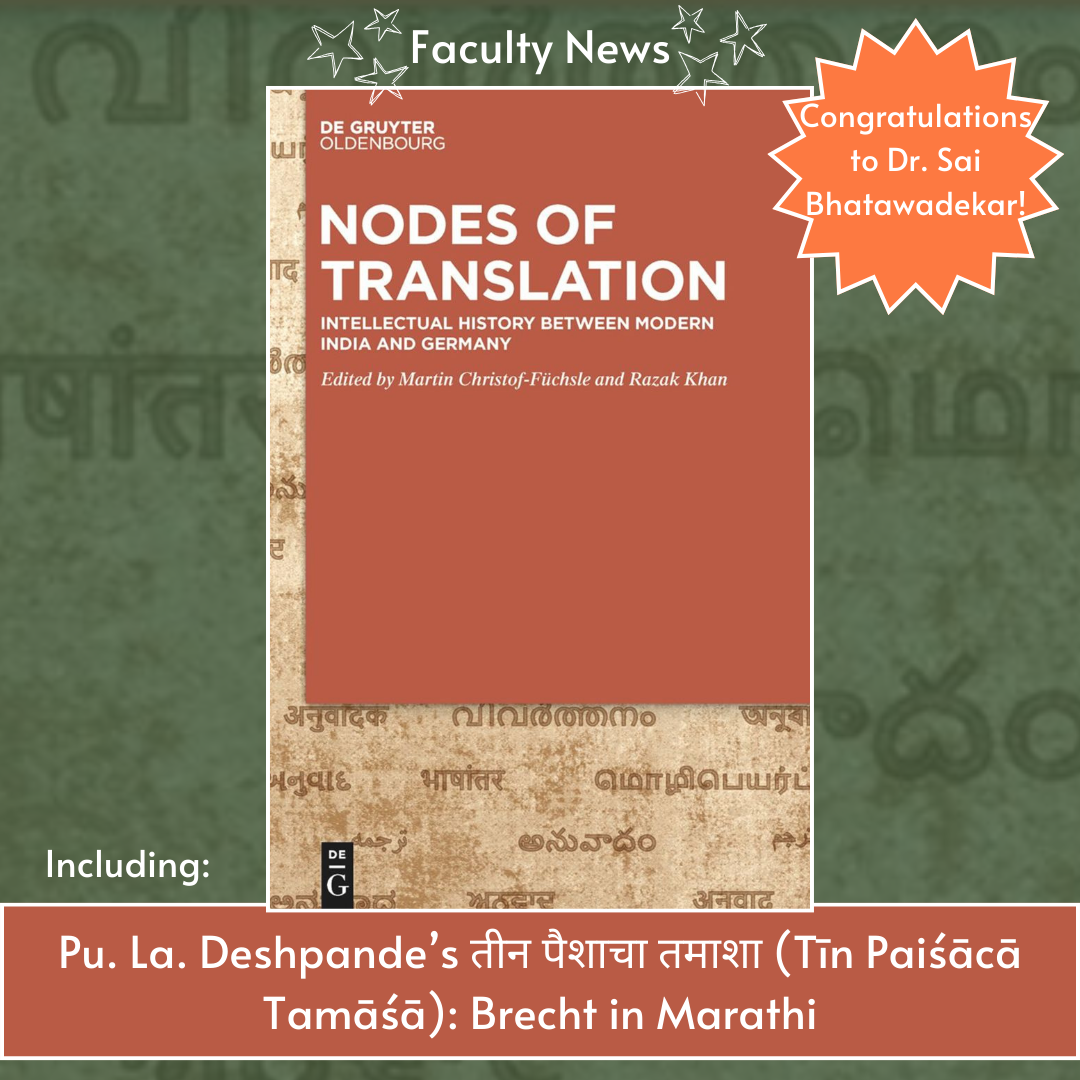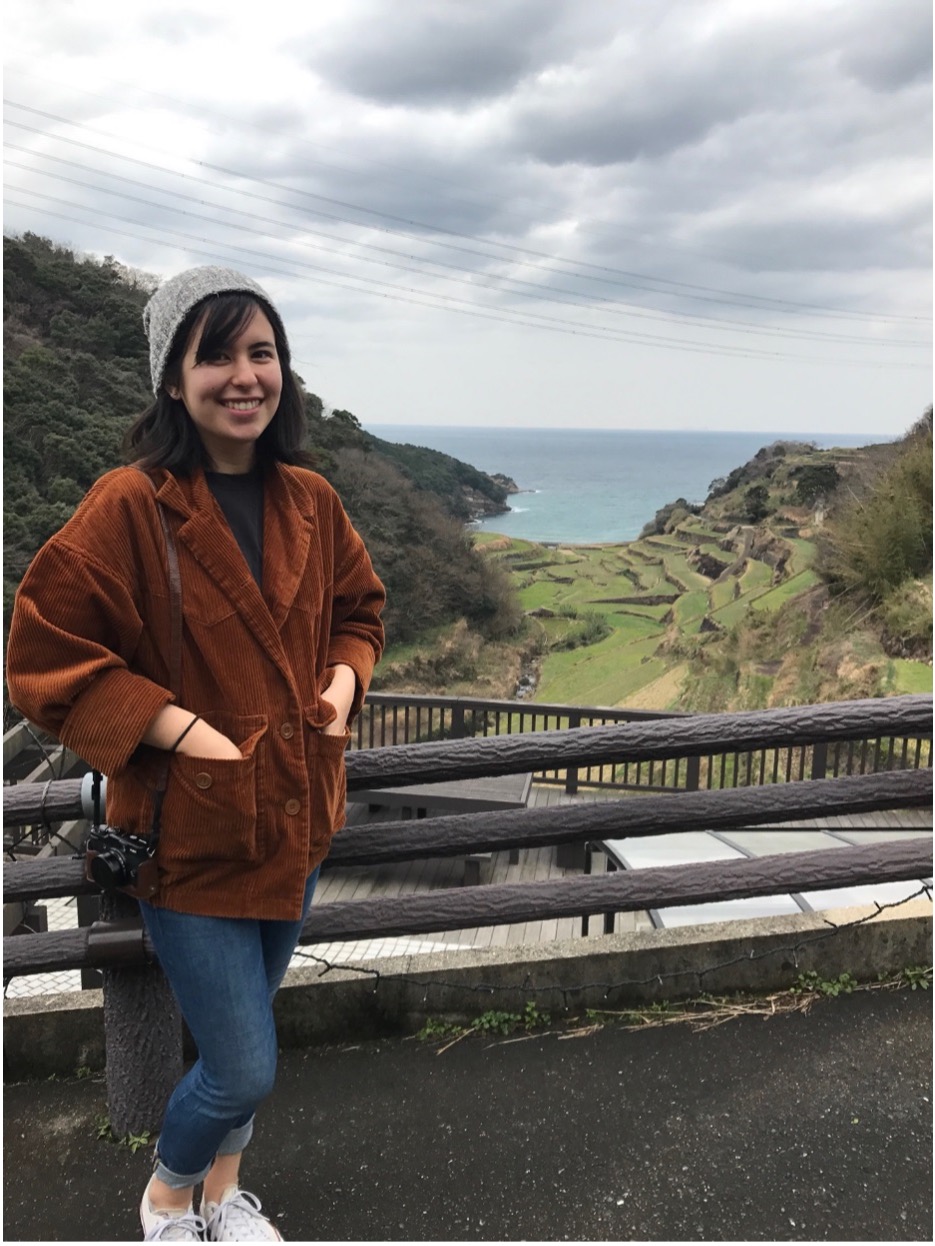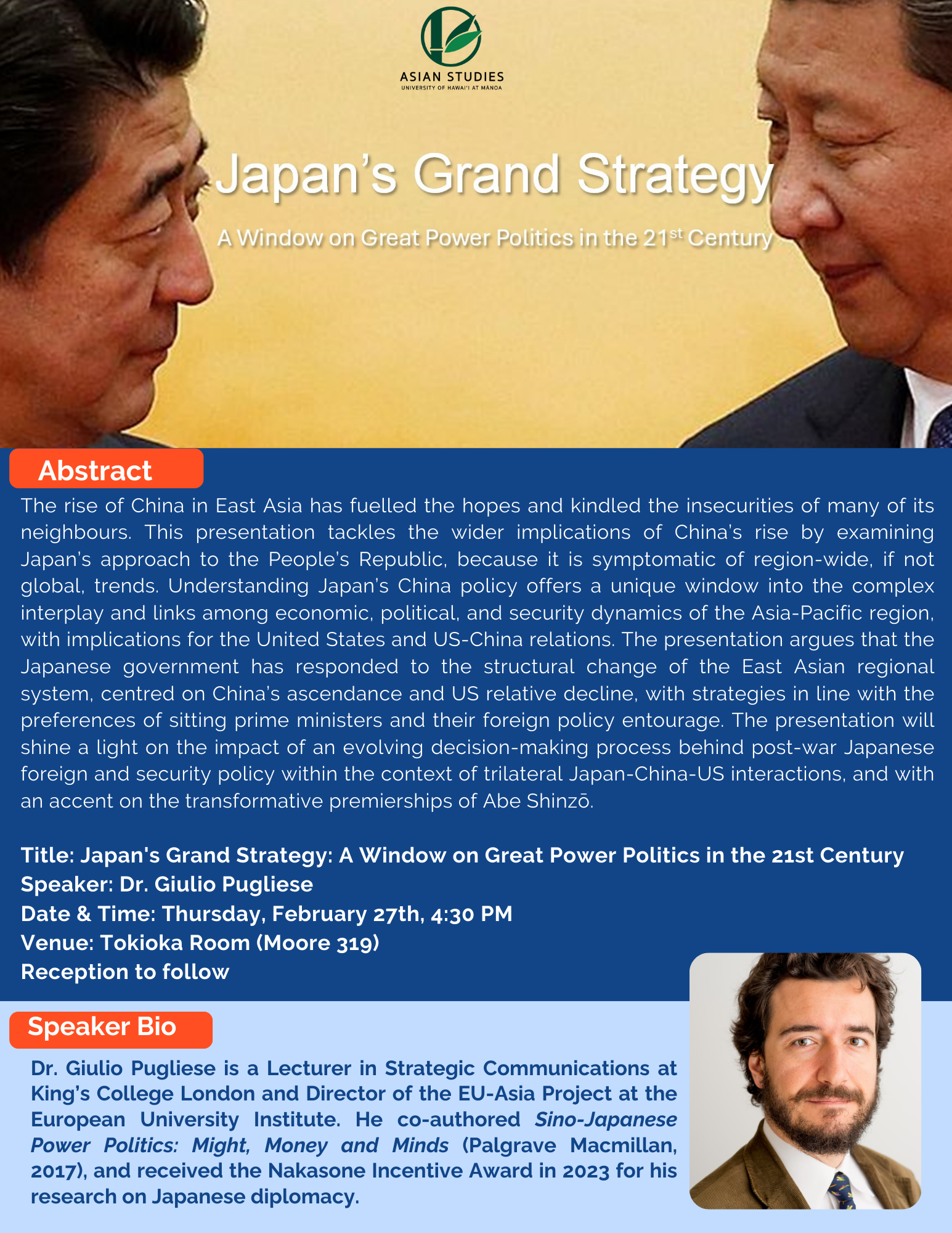The Department of Asian Studies is proud to highlight an innovative digital humanities project developed…

Dr. Sai Bhatawadekar’s latest article published
Congratulations to Dr. Sai Bhatawadekar! Her latest article, “Pu. La. Deshpande’s तीन पैशाचा तमाशा (Tīn Paiśācā Tamāśā): Brecht in Marathi,” was published in Nodes of Translation: Intellectual History between Modern India and Germany by De Gruyter Oldenbourg.
Pu. La. Deshpande’s तीनपैशाचातमाशा (Tīn Paiśācā Tamāśā,1978) is a Marathi adap-tation of Bertolt Brecht’s Die Dreigroschenoper. Pu. La., as he is known by his initial syllables, relocates the play in Mumbai, turns Brecht’s Polly into Mālī, Peachum into Pañcapātre, Mackie Messer/Mack the Knife into Aṅkuś (ankus/elephant goad), and an “opera” into a “tamāśā.” The beggars, crime gangs, police in cahoots, sex workers, and the matter-of-course corruption represent an all too familiar Mumbai and India of the 1970s. Pu. La. creates both critical distance and laugh-out-loud entertainment; he packs the play with social, political, and religious critique, yet ultimately asks us to “forget what you saw here,” and even implicates theatre-makers and audiences themselves in bourgeois hypocrisy.





